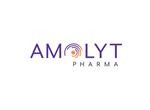Amolyt Pharma announced positive efficacy and safety data from the first cohort of its ongoing Phase 2a study of AZP-3601 in patients with hypoparathyroidism at the American Society for Bone and Mineral Research 2022 Annual Meeting, which is being held September 9-12 in Austin, TX.
Company to host Key Opinion Leader webinar today, September 12, at 1:30 pm CT/2:30 pm ET
LYON, France and CAMBRIDGE, Mass., Sept. 12, 2022 (GLOBE NEWSWIRE) -- Amolyt Pharma, a global company specialized in developing therapeutic peptides for rare endocrine and related diseases, today announced positive efficacy and safety data from the first cohort of its ongoing Phase 2a study of AZP-3601 in patients with hypoparathyroidism at the American Society for Bone and Mineral Research 2022 Annual Meeting (ASBMR), which is being held September 9-12 in Austin, TX.
During three months of treatment with AZP-3601, mean serum calcium levels were maintained within the target range and allowed for the discontinuation of oral calcium and active vitamin D supplementation in most patients. Normalization of urinary calcium was rapidly achieved in all patients, including those with hypercalciuria at baseline, together with restoration of balanced bone resorption/formation activity. AZP-3601 was well tolerated and demonstrated a favorable safety profile.
“We are very pleased with the compelling results from the first patient cohort of this ongoing trial,” said Mark Sumeray, M.D., chief medical officer of Amolyt Pharma. “The data demonstrate that the mechanism of action of AZP-3601 translates into important potential clinical benefits for patients with hypoparathyroidism, in particular those with or at risk of developing hypercalciuria, osteopenia or osteoporosis, who represent the majority of patients with this disease. We look forward to results from Cohort 2, which will inform the design of a Phase 3 trial as we work to advance this promising therapeutic peptide through an efficient late-stage development plan.”
Key findings:
- At the end of the treatment period, active vitamin D and oral calcium were discontinued in 90% and 80% of patients, respectively, while mean AdsCa remained within the target range.
- 24-hour urinary excretion of calcium was rapidly normalized in all cases including in patients with hypercalciuria at baseline.
- Bone turnover biomarkers P1NP and CTX slightly increased after two weeks of treatment and remained within their mid-normal range through the end of the study, consistent with a balanced increase in bone turnover.
- AZP-3601 was well tolerated with no serious adverse events and only mild to moderate adverse events.
The study was a three-month multi-center open-label design. Following an optimization period of up to eight weeks during which calcium and active vitamin D supplementation were adjusted to achieve baseline albumin-adjusted serum calcium (AdsCa) within the range of 7.8 to 9.0mg/dL, patients received a daily subcutaneous (sc) administration of 20µg AZP-3601 for 28 days, while simultaneously reducing their calcium and active vitamin D intake. Further up-titration to a maximum dose of 60 µg/d was recommended if needed to achieve AdsCa within the target range.
Thierry Abribat, Ph.D., founder and chief executive officer of Amolyt Pharma, added, “With AZP-3601, our key underlying assumption is that intermittent administration of this PTH analog targeting the R0 conformation of the PTH receptor would induce a long-acting effect on serum Ca, mainly through a potent and sustained effect on Ca reabsorption in the kidney, while stimulating resumption of normal bone metabolism, thus preserving bone minerality. These data support this assumption, outlining a potentially new clinical profile, which we believe is ideally suited to address the needs of patients with hypoparathyroidism.”
Oral Presentation Details:
Title: Efficacy and Safety of AZP-3601, a Novel Investigational Long-Acting PTH Analog for Treatment of Hypoparathyroidism. Results From the First Cohort of a 3-Month Multi-Center Open Label Phase 2a Study
Format: Late-breaking oral presentation
Date: Monday, September 12, 2022
Session time: 11:30 am-12:45 pm CT (12:30 pm-1:45 pm ET)
Presentation time: 11:30 am-11:45 am CT (12:30 pm-12:45 pm ET)
Author/Presenter: Istvan Takács, M.D. (Semmelweis University, Budapest, Hungary), author and lead investigator of the study
Investor webinar:
Amolyt will host a KOL webinar to discuss these Phase 2a results in more detail today, September 12, 2022, at 1:30 pm CT/2:30 pm ET. Interested parties can register for the webinar here.
About Hypoparathyroidism
Hypoparathyroidism is defined by a deficiency of parathyroid hormone (PTH) that results in decreased calcium and elevated phosphorus levels in the blood. Approximately 80% of the estimated 80,000 people in the U.S. and 110,000 in the European Union with hypoparathyroidism are women. Despite available treatments, patients experience persistent, life-altering symptoms and often develop complications and comorbidities that diminish quality of life and create segments of the patient population with specific clinical needs. Clinical manifestations of hypoparathyroidism impact many tissues and organ systems, in particular, the kidneys and bone. 17% of patients with hypoparathyroidism have osteopenia or osteoporosis and 53% are peri- or postmenopausal women with an increased risk of developing osteoporosis. Approximately 26% of patients with hypoparathyroidism have chronic kidney disease or failure, highlighting the importance of reducing urinary calcium excretion as a key treatment goal.
About AZP-3601
AZP-3601 is an investigational therapeutic peptide designed to target a specific conformation of the parathyroid hormone (PTH) receptor to safely produce sustained and stable levels of calcium in the blood and thereby manage the symptoms of hypoparathyroidism, and to limit urine calcium excretion by restoring calcium reabsorption by the kidney, with the goal of consequently preventing chronic kidney disease. In addition to its unique receptor profile, AZP-3601 is also designed to have a short half-life to potentially preserve bone integrity, an important benefit, since many patients are peri- and postmenopausal women with an increased risk of developing osteoporosis.
About Amolyt Pharma
Amolyt Pharma, a clinical stage biotechnology company, is building on its team’s established expertise in therapeutic peptides to deliver life-changing treatments to patients suffering from rare endocrine and related diseases. Its development portfolio includes AZP-3601, a long-acting PTH analog as a potential treatment for hypoparathyroidism, and AZP-3813, a peptide growth hormone receptor antagonist for the potential treatment of acromegaly. Amolyt Pharma aims to further expand and develop its portfolio by leveraging its global network in the field of endocrinology and with support from a strong syndicate of international investors. To learn more, visit https://amolytpharma.com/ or follow us on Twitter and LinkedIn.
Media:
Cherilyn Cecchini, M.D.
LifeSci Communications
ccecchini@lifescicomms.com
+1.646.876.5196
Investors:
Ashley Robinson
LifeSci Advisors, LLC
arr@lifesciadvisors.com
+1.617.430.7577






